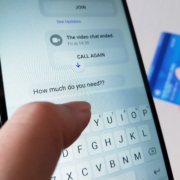Is that really your friend messaging you online?
Social media has made it easier than ever to connect with people you know. This also means that scammers are only a few clicks away from causing serious harm. Consumers have submitted numerous reports to Fraud.org about scammers who have solicited money and personal information while impersonating someone else on a social media platform.
This impersonation typically happens in one of two ways. In an account takeover, the fraudster gains unauthorized access to someone’s account. The other way is by setting up an imposter account where the fraudster creates a new account pretending to be someone else, often by using pictures that their target had publicly uploaded before. In both cases, the scammer will use the hacked or impersonated account to distribute a web link or ask for personal information from accounts in their target’s following/friends list.
These messages often come with a plausible sounding ask. For example, imposter accounts may claim that they are trying to regain access to their original account and to help them do so, you must answer their questions or click on a link. It is also common for compromised accounts to share fraudulent money-making opportunities for things like fake cryptocurrencies or government programs.
One consumer from Iowa reported to Fraud.org that a friend’s account shared details about a grant on social media. After learning more, the consumer was told that they qualified for the award, but they had to pay delivery fees first. In the end, the fraudsters took $1,000 from the Iowan through bogus fees and the grant never materialized.
If you think an imposter is contacting you, remember the following tips:
- Do not open any links or comply with requests for information. Even if they provide reasonable justification for their requests, you could be putting your own account at risk by cooperating. It is best not to interact or respond to a suspicious account.
- Do not send them money. It is unusual for people to ask for money over social media. If you are close enough with someone that they are asking for help, they should be able to get in touch with you by other methods.
- Contact the person another way. If you think someone might be impersonating your friend on social media, send your friend a text message and see if it is really them. If you suspect that their phone may be stolen (or that they are a victim of SIM-swapping), ask a mutual friend if they have noticed unusual behavior as well.
- Report the account. Most social media platforms allow users to report accounts for suspected impersonation, fraud, or both. The sooner the platform becomes aware of the problem, the quicker they can take action.
- Pay attention to warnings from the platform. Major digital platforms that allow messaging between users will automatically filter out suspicious communications. Think twice before opening messages flagged as spam.
If you or someone you know has been a fraud victim, help yourself and other by reporting it! By using Fraud.org’s secure online complaint form, your complaint will be shared with our network of consumer protection and law enforcement agency partners.







